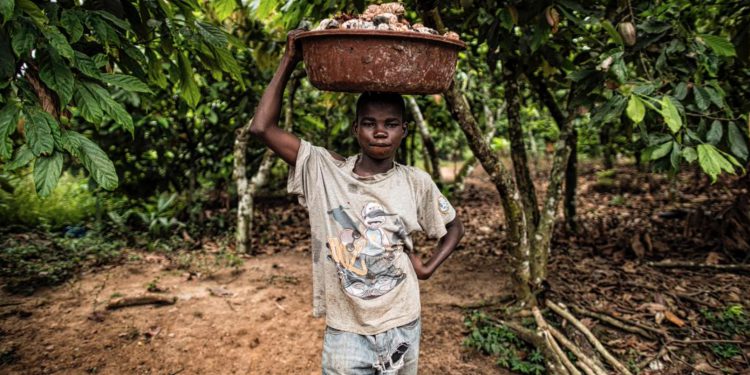Only 13 per cent of agrifood companies can prove they are trying to end forced labour, according to new insights published this month by the World Benchmarking Alliance (WBA).
This includes making sure suppliers don’t retain workers’ personal documents or restrict workers’ freedom of movement.
Only two companies, Musim Mas and Unilever, have fully committed to paying a living wage by setting targets across their business activities and supply chains.
The WBA’s benchmark rates the 350 most influential agriculture and food companies, accounting for more than half of world’s food and agriculture revenue, and directly employing over 23 million people.
Their disproportionate impact through supply chains can drive change dramatically.
“41 per cent of companies say they don’t use child labour, but few could prove it”
Just 9 per cent of companies proved concrete action on living wages by disclosing how they were calculated.
“Despite the high prevalence of child and forced labour in the sector, corporate disclosure of commitments and processes to tackle these issues were found to be low,” the report said.
Although 41 per cent of companies said that they don’t use child labour, few were able to provide evidence of monitoring and verification, such as requiring suppliers to verify the age of workers.
In other findings, just 15 per cent of the companies recognised and respected legitimate land tenure rights and only 9 per cent required their suppliers to do so.
The WBA’s Food and Agriculture Benchmark is described as an accountability tool for the private sector. Almost two-thirds of the companies benchmarked failed to reach one quarter of the possible score – meaning 229 of all companies assessed are performing below 25 out of 100.
“Food and agricultural is recognised as a high-risk sector for human rights abuses”
Unilever tops the benchmark, followed by Nestlé and Danone. Beyond the top performers, scores decrease rapidly.
“Food and agriculture is generally recognised as a high-risk sector for human rights abuses due to its long and sometimes opaque supply chains,” the report says.
“Less than 10 per cent of companies demonstrate having a full human rights due diligence mechanism in place.”
It also found only 11 per cent of companies have set sustainability strategies addressing the environment, nutrition and social inclusion.
“Most companies are yet to take a holistic sustainability approach,” the report says.
“Five companies link remuneration to the environment, nutrition and social inclusion”
Of the 350 companies assessed, 55 companies are linking top management remuneration policies to performance around sustainable development metrics.
Five companies are going further and linking remuneration to sustainable development metrics across all three areas: the environment, nutrition and social inclusion.
“This is an important step in acknowledging sustainable development topics are as essential as other, more operational, performance metrics,” the report says.
“The aspiration is that eventually, remuneration linked to sustainable development matters is cascaded across the organisation, much like financial performance.”
The report found reducing antibiotic use and growth-promoting substances was the issue companies were least likely to disclose. Of the 231 companies assessed against this indicator, approximately 70 per cent were unable to demonstrate a commitment to disclose policies on reducing the prophylactic use of antibiotics and growth promoting substances.
Most companies also struggled to tackle nutritional and health challenges in their core business. Aroud 80 per cent of them do not provide evidence of improving the accessibility and affordability of nutritious food.























